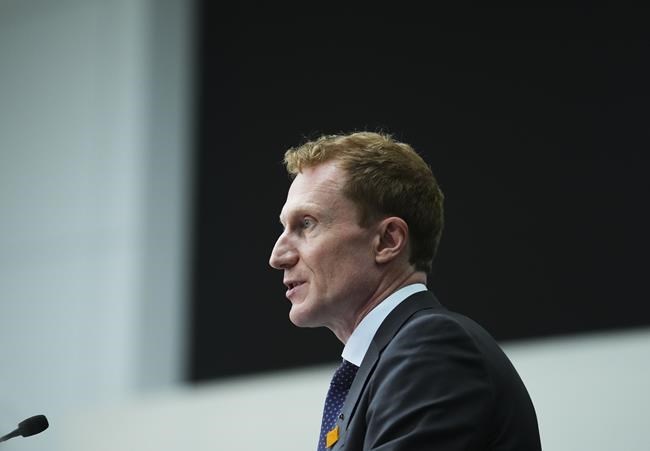OTTAWA — Crown-Indigenous Relations Minister Marc Miller says the "gaps" in Pope Francis's apology to residential school survivors cannot be ignored.Â
In an interview with The Canadian Press, Miller stressed how the pontiff's words, delivered before a crowd of survivors and others gathered near Edmonton on Monday, are deeply important to those now absorbing them.
"This is still an emotional moment."
The minister said Indigenous people will decide for themselves what they think.Â
However, two concerns being expressed are that Francis did not mention sexual abuse in his remarks, and he mentioned the "evil" committed by Christians, but not the Catholic Church as an institution.
The Truth and Reconciliation Commission (TRC) clearly called for a papal apology to be similar to the 2010 apology the Vatican gave to victims in Ireland, Miller said.
The minister said that apology — delivered by Pope Benedict XVI through a letter — directly referred to the sexual abuses suffered by Irish children and the role played by the Catholic Church.
"That is a clear distinction in the two," said Miller. "The discrepancies speak for themselves."Â
Manitoba Keewatinowi Okimakanak (MKO), which represents northern First Nations, said in a statement it was happy to see survivors receive an apology, but noted the omission of apologizing for sexual abuses.
"Saying sorry and acknowledging the harms that have been caused is just one step of many that need to happen. There is so much more work to be done."
It joined other Indigenous leaders, along with survivors and advocates, in expressing hope that the Pope will renounce the Doctrine of Discovery — a policy stemming from a series of Catholic Church decrees dating back to the 15th century. Countries have used it to justify colonizing lands considered to be uninhabited, but were in fact home to Indigenous Peoples.Â
They say the policy set the stage for future assimilation efforts, like the residential school system, and where paternal attitudes toward Indigenous people are rooted.Â
"It was a bit surprising the Doctrine of Discovery was also not mentioned, but maybe it will be down the road," MKO said in its statement.Â
Organizers of the papal visit, including the Canadian Conference of Catholic Bishops, have not yet responded to a request for comment regarding the concerns raised.Â
Among the apology's harshest critics was Murray Sinclair, who chaired the TRC.Â
Sinclair has said the Pope's words left a "deep hole" in recognizing the full role the Catholic Church played in operating residential schools by highlighting the actions of Christians, not the church as an institution.Â
Miller, who travelled to Alberta for the papal visit, said the government will be seeking more detail on what Pope Francis meant when, in his apology, he said a "serious investigation" would be needed into what happened at residential schools.Â
The TRC, in writing its final report, collected testimony from more than 6,000 witnesses over six years.Â
This report by The Canadian Press was first published July 27, 2022.
Stephanie Taylor, The Canadian Press




